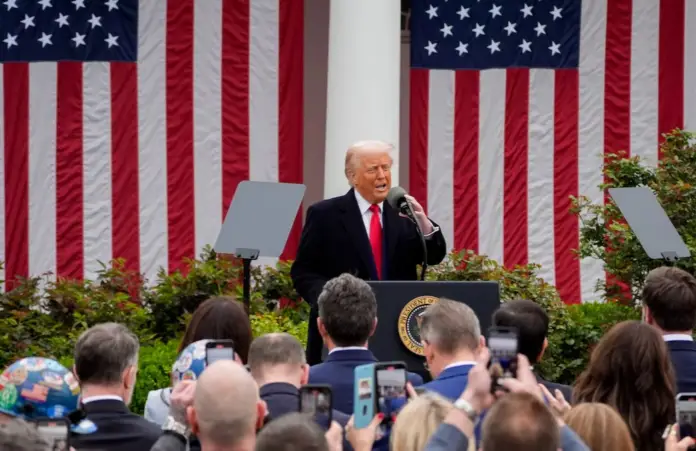The United States maintains its tariff exemption for Canada and Mexico under the USMCA, and they will not be subject to the reciprocal tariffs announced by President Donald Trump, according to a White House official.
During the unveiling of the reciprocal tariffs, Donald Trump said the US cannot continue to pay for Canada and Mexico’s deficits.
“In Mexico’s case, it’s $300 billion a year; in Canada’s case, it’s close to $200 billion a year,” he said.
For Canada and Mexico, existing IEEPA orders on fentanyl and immigration remain in effect and are not affected by this new provision. This means that USMCA-compliant goods will continue to face a 0 percent tariff, while non-USMCA-compliant goods will be subject to a 25 percent tariff. For energy products and potash (minerals) that do not comply with the USMCA, the tariff will be 10 percent.
If the current IEEPA orders on fentanyl and immigration were eliminated, goods that comply with the USMCA would continue to receive preferential treatment, while those that do not would be subject to a 12 percent reciprocal tariff.
Donald Trump and His Liberation Day
The Liberation Day announced by President Donald Trump arrived this Wednesday for the United States, with the announcement of tariffs for the entire world.
From the White House, the US president confirmed the imposition of reciprocal tariffs on countries so that the United States would abandon monetary barriers due to other nations’ “theft” from the United States.
“It’s very simple, it couldn’t be simpler, it’s our declaration of economic independence,” he said in a ceremony from the White House Rose Garden.
As expected, Donald Trump confirmed the 25 percent tariff on all vehicles from other countries, which will take effect at the first minute of Thursday, April 3.
Sharing that he will sign this decree this Wednesday to enshrine it in history, the Republican stated, “With today’s action, we will make America greater than ever.”

Source: elfinanciero




